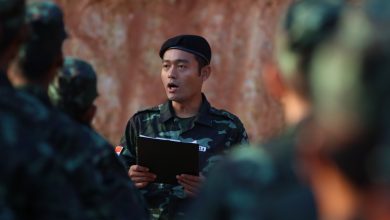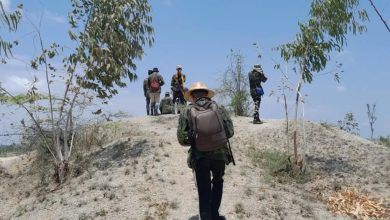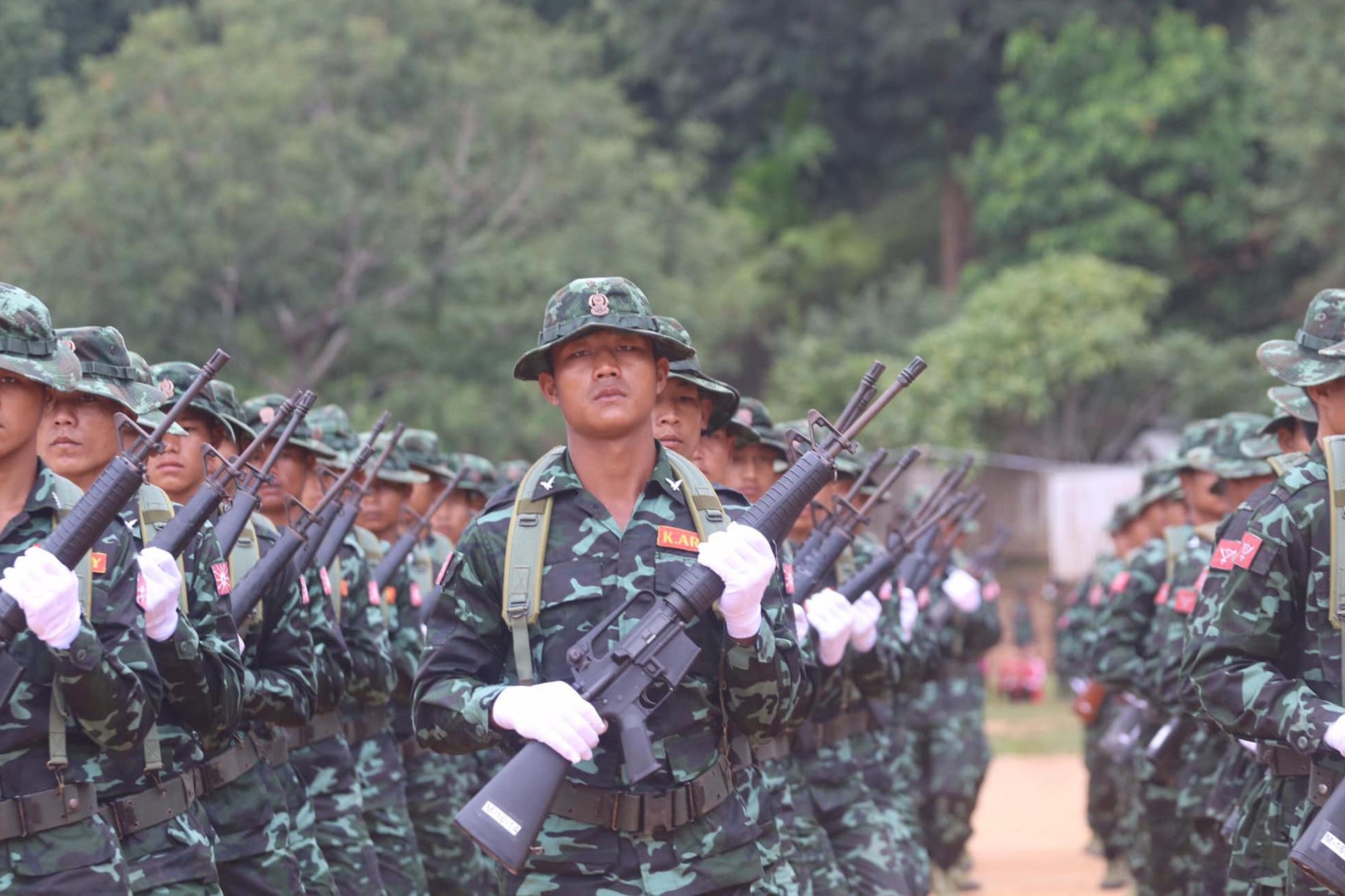
Sixty-two people are so far confirmed to have been killed in the junta’s aerial bombing of a Kachin State music festival on Sunday evening, according to a spokesperson for the Kachin Independence Organisation/Army (KIO/A).
Among them were four high-ranking officers in the KIA’s Brigade 9, which is active in Hpakant Township, where the airstrike took place, Col Naw Bu told Myanmar Now.
With phone and internet connections cut off to the area by the Myanmar military, it remains difficult to verify further details of the attack, one of the deadliest since the February 2021 coup.
The presence of junta checkpoints on main roads has trapped those wounded in the assault in a village near the A Nang Pa venue, preventing them from accessing medical treatment and raising fears that the death toll will continue to rise.
Myanmar Now spoke with a survivor of the incident on Tuesday, who hid in the forest after the assault and managed to escape the area the day after the bombing. On the condition of anonymity, he described the force of the weapons, where they hit, and the panic he felt that night.
Myanmar Now: What happened that night?
Survivor: We were watching the concert, but I don’t even remember much after the bombing started, because we had to flee in panic to a safer place. I had arrived in the evening for the show. It had already started when the bombing began, and the bombs fell near the stage. I couldn’t see anything after the bombs started dropping, and I ran towards the woods. I had never experienced something like this before in my life.
MN: Who was singing when the bombing started?
S: I don’t remember the name of the artist that was performing. They hadn’t even started singing yet. They were just preparing for their set and the celebrations were already in the final phase. I only went there because I wanted to see the show. I got to hear two songs and watch a dance performance. I don’t know the entire list of performers for the show. I had not been to that place before.
MN: Where were you when the bombing started?
S: I was watching the show from outside the actual space for the audience—in an area to the left of that space. Nobody was singing along or dancing there, but both older people and youth were in front of me.
MN: Did you see where the bombs hit?
S: A bomb fell right in the audience. There were at least 100 people in that area. It fell in front of me, but a little ways away.
When I started running, I could see flames. It was so bright. I think [the aircrafts] dropped ‘fire bombs’ too, as buildings started burning soon after the bombing began. I was actually thrown by the force of the blast of the first one. When I could see again, the place where I was sitting was already on fire.


MN: Did you suffer any injuries?
S: When I landed after getting thrown back by the explosion, I was hit in the face by dirt. I started running as soon as I regained consciousness. I wasn’t hit by shrapnel, maybe because I was sitting behind a row of chairs. Both my friend and I were sitting in our seats and both of us were thrown back. I still don’t know where any of my friends are right now. I lost contact with them and haven’t been able to reach them since the attack. I don’t even have the words to describe the incident. My ears were ringing and the ringing didn’t stop until yesterday [two days later].
MN: Did all the bombs fall simultaneously?
S: They dropped the bombs one after another. One of them fell on the kitchen area where they were preparing food for concertgoers, and the other fell on the audience.
MN: Could you hear the military jets coming before the bombing?
S: No, I couldn’t. I only heard them when they were right about to drop the bombs. When I realized that they were there, the bombs were already mid-air. We only knew when they were right over our heads. It was especially hard because the telephone and internet connections were cut off at that time.
MN: Did you return to the concert site after the explosions?
S: No, I didn’t. I hid in the woods for the whole night and went back home in the morning. The place where I was hiding was quite far from the venue and I was too scared to go back, because there was a risk that they would come back for a second attack.
MN: We heard that the military blocked the main roads to the A Nang Pa area. How did you get back to your village?
S: I got home using an alternative route and avoided the checkpoints.
This interview was lightly edited for clarity.



